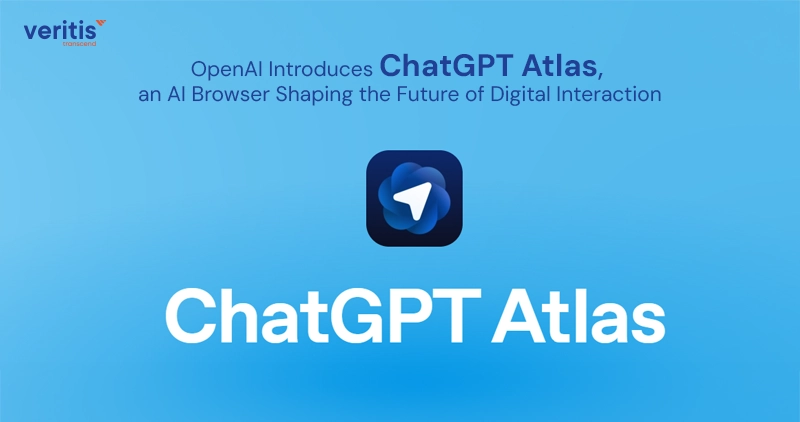
OpenAI has announced ChatGPT Atlas, a new intelligent browser that combines artificial intelligence with everyday web navigation. The launch represents a major advancement in OpenAI’s evolution, expanding its conversational intelligence into a dynamic browser that reshapes how people discover, interpret, and use information online.
Atlas turns the web into an interactive workspace. Instead of typing queries and switching between tabs, users can communicate directly with the browser to summarize reports, interpret visuals, and generate insights instantly. It blends browsing, automation, and reasoning into one seamless experience.
Intelligent Automation Through Agent Mode
At the core of Atlas lies an advanced version of OpenAI’s GPT model integrated with real time retrieval and contextual reasoning. The browser operates on a customized Chromium foundation connected securely to OpenAI’s inference servers. This architecture enables deep processing of text, images, and structured data, allowing users to derive meaning and take action simultaneously.
A defining capability called agent mode allows Atlas to perform user approved actions on web pages. It can fill out forms, compare products, schedule meetings, or even complete transactions. The process relies on OpenAI’s secure execution environment, which ensures that every automated step is authorized and transparent. This feature demonstrates how AI can move from a support role to an active decision making partner in the browsing experience.
Redefining the Search and Browsing Landscape
With Chrome still holding more than 70 percent of the global market, OpenAI’s entry introduces a new dimension to competition. Atlas replaces traditional search with intent driven interaction, removing the need for multiple steps between inquiry and outcome. Analysts view this as the beginning of a shift from keyword based discovery toward contextual understanding and task automation.
For professionals and enterprises, this transformation could significantly improve research and operational workflows. Atlas can summarize complex documentation, extract actionable insights, and help teams accelerate reporting or procurement cycles. By embedding reasoning directly into the user interface, friction between human thought and digital execution is reduced.
OpenAI has begun rolling out Atlas for macOS, with versions for Windows, iOS, and Android expected soon. The company has yet to announce commercial integrations or advertising features, keeping the focus on user experience and responsible deployment. As with any AI driven platform, data governance, consent, and security will remain critical factors for widespread enterprise adoption.
Conclusion
The release of ChatGPT Atlas underscores a growing trend in enterprise technology where AI is not an analytical layer but a foundational interface for work. At Veritis, we see this development as a glimpse into the future of cognitive automation, where intelligent systems connect users, data, and decisions in real time. Our focus remains on helping organizations embrace these advancements responsibly, ensuring that innovation, governance, and measurable business outcomes move forward together.
Additional Resources:
- Google’s Gemini AI Now Schedules Meetings Directly in Gmail
- Alibaba Launches Qwen3 Max AI Model With Over 1 Trillion Parameters
- OpenAI Launches SearchGPT Prototype for Testing as New AI Search Engine
- DeepSeek AI – The Next Frontier in Artificial Intelligence Innovation
- Google Project Mariner, the AI Agent Redefining How You Navigate the Web